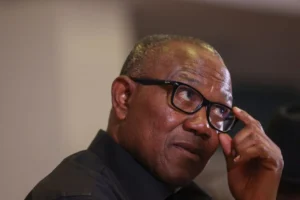In the lead-up to Nigeria’s 2023 general elections, Peter Obi emerged as a unifying figure for millions of young Nigerians seeking meaningful change. Through the rise of the “Obidients” movement—a grassroots coalition largely made up of disenchanted youth—Obi channeled public anger over poor governance, insecurity, and lack of opportunity into an organized political force.
The name “Obidients” stems from Obi’s surname and reflects a generation that sees in him a departure from the political status quo. With widespread dissatisfaction following the #EndSARS protests and continued economic hardship, the movement quickly evolved into a national call for reform, accountability, and inclusive leadership.
A Movement Without Party Chains
What made the Obidients movement distinct was its spontaneous, decentralized nature. Rather than being led by traditional party structures, the movement relied on organic coordination through social media platforms like Twitter, Facebook, and Instagram. Young Nigerians, both at home and in the diaspora, volunteered time, money, and resources to amplify Obi’s message and vision.
Massive rallies and marches were held in major cities including Lagos, Abuja, and Port Harcourt. These events, often crowd-funded, demonstrated the movement’s reach and the deep yearning for a shift in political culture. Many supporters described the campaign not as a political race, but as a mission to rescue Nigeria from decades of poor leadership and corruption.

Breaking from Tradition, Embracing Transparency
Obi’s campaign resonated strongly with young people for its emphasis on frugality, data-driven policies, and transparent governance. His reputation as a prudent former governor of Anambra State and his policy-oriented public appearances set him apart from other candidates.
The Obidients embraced these values and used them as rallying points to counter decades of patronage politics. Their campaign dismissed tribalism and religious divides, instead calling for competence, character, and service.
Changing the Narrative Ahead of 2023
Although Peter Obi ran under the Labour Party, the Obidients made clear that their allegiance was not to a party but to principles. Obi himself stated that the movement included supporters from all political backgrounds and should not be tied exclusively to the Labour Party.
In several urban constituencies, especially among educated youth and middle-class Nigerians, the movement dramatically shifted the political conversation. It put pressure on other candidates to respond to policy questions, engage young voters, and address calls for real reform.
Beyond Elections: A Blueprint for Future Engagement
Even after the elections, the Obidient movement continued to make waves. Organizers focused on voter education, community outreach, and political accountability. In June 2025, the movement launched a national fundraising drive to commemorate Obi’s 64th birthday, with funds earmarked for civic engagement initiatives and humanitarian causes.
This post-election activity highlighted the movement’s long-term aspirations: to remain a force for democratic values and good governance beyond the ballot box.
The Start of a New Political Era
Peter Obi’s success in galvanizing a youthful, principled political base through the Obidient movement marked a turning point in Nigeria’s democratic evolution. With traditional parties caught off-guard by the scale and passion of this new political generation, the future of Nigerian politics may now hinge on how this movement transforms its momentum into lasting institutional influence.
While Peter Obi may not have secured the presidency in 2023, he awakened a generation—and the Obidients are just getting started.







